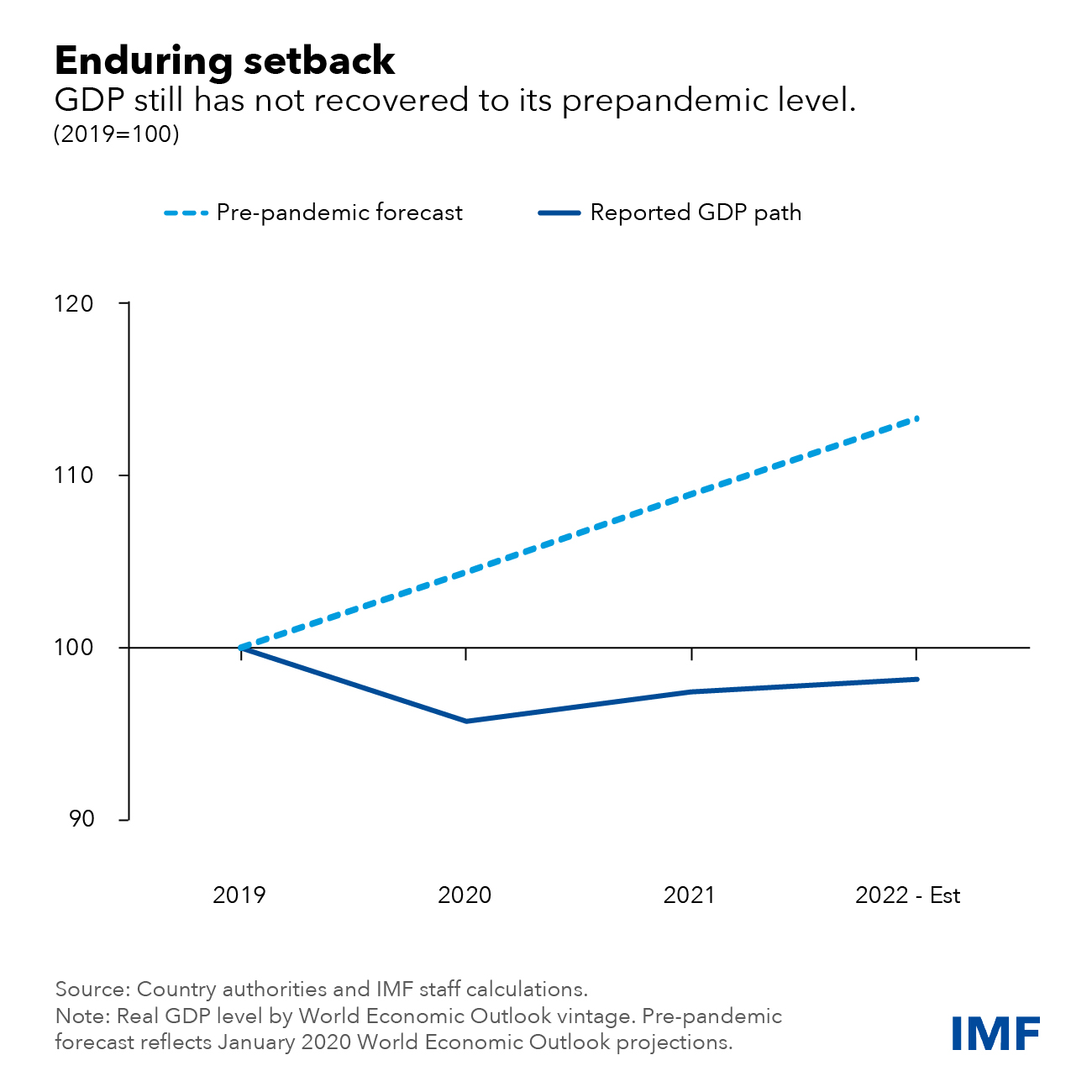Tuvalu Needs to Build Resilience Amid Threat from Rising Seas
July 26, 2023
Domestic policies can help support growth in coming years, but long-term prospects also depend on the global community’s ability to prevent destructive global warming outcomes
Tuvalu’s population of 11,000 is spread across nine Pacific islands that rise less than five meters above sea level, underscoring its extraordinary challenges from climate change.
Tuvalu experienced remarkably limited health consequences from the pandemic due to prompt containment and widespread vaccination. But its economic fallout has been significant—economic activity remains below pre-pandemic levels, much-needed climate adaptation projects have been delayed, fiscal pressures have risen, and outbound migration clouds Tuvalu’s growth potential.
This economic setback makes addressing the various risks the country faces—from climate change to fiscal sustainability—more difficult.
After our visit to Tuvalu earlier this year, as part of our regular review of the economy and consultation with the authorities, we noted in our report that a comprehensive set of policies can help reduce uncertainty, fostering private-sector activity and growth in an economy where the public sector currently plays the predominant role.
Raising more revenues and making government spending as efficient as possible can promote fiscal sustainability. At the same time, fiscal reforms, for example to strengthen oversight of spending plans, can facilitate access to climate finance from donors. This financing remains critical given climate adaptation needs that are enormous relative to the size of the economy.
This should be complemented by reforms to strengthen the domestic banking industry’s connectivity to the global payments system, deepening trade integration, and enhancing human capital through initiatives such as designing scholarships for overseas study that in turn build up the skills Tuvalu needs.
A more diversified economy that succeeds in building resilience should also help incentivize Tuvaluans to deploy their skills in the country, thus reducing migration pressures.
Global Climate Action
But while domestic policies can go a long way in fostering growth in coming years, Tuvalu’s long-term prospects also depend on the world’s collective ability to prevent destructive global warming scenarios. This is because under a high global emissions scenario and with its existing infrastructure, the country may become uninhabitable by the end of this century as a result of rising sea levels.
Such scenarios pose an existential threat to Tuvalu, just as they do to hundreds of millions around the world also living close to sea level. Ultimately, Tuvalu’s climate change plight underscores the responsibility of the global community to urgently step-up efforts to reduce global emissions.
****
Diego A. Cerdeiro is a senior economist and mission chief for Tuvalu, and Roman D. Merga and Chris Redl are economists in the IMF's Asia Pacific Department.










